Renegade Fairy Tale.
By Video_Game_King 8 Comments
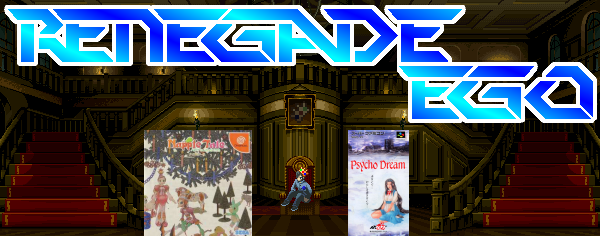
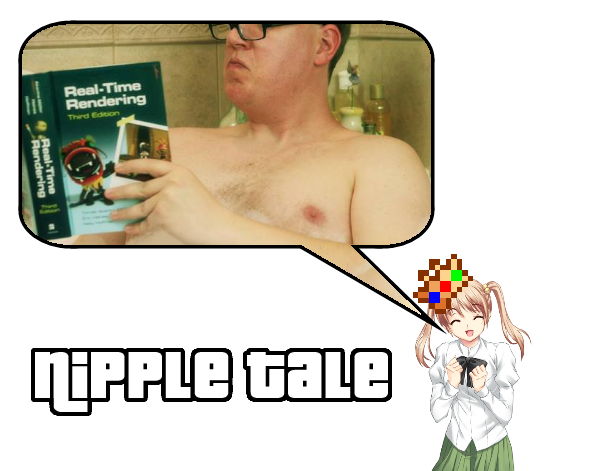
Wait, that's for another blog I'm writing.
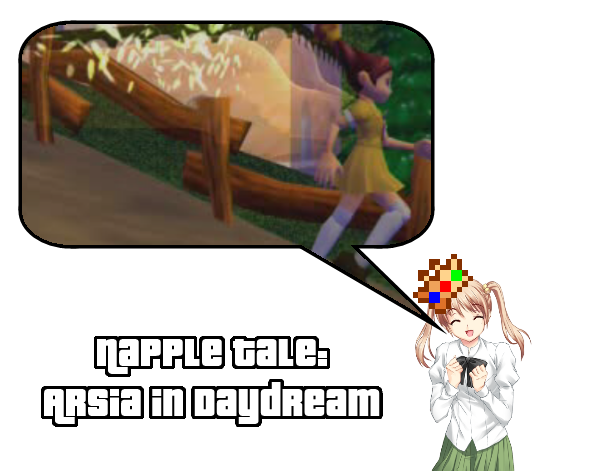
That's better. Well, better in terms of what I want to discuss......Anyway, Napple Tale. Remember when Sega was a real creative powerhouse in the industry? Well, I do, and Napple Tale is a product of that era. No, wait, it was actually ahead of its time. Thirteen years before sexism debates embroiled the gaming landscape, Sega decided to publish a game made without the help of a single Y chromosome. And man, did it pay off. What we have here is one of the more polished and underappreciated platformers of the late Dreamcast era. Sure, the writers probably weren't aware of how scarily schizophrenic the mood is, but there are some sincerely sweet and sentimental moments, all wrapped up in a delightfully playful platforming adventure.
But of course, you still have to get past the deeply unsettling aspects of the game. Like the basic premise! A young girl by the name of Poach attends a summer festival with very bad compression quality and ends up being led to her death. I'm not making that part up; the game begins with her dying because of mistaken identity and meeting an angel of death. But don't worry! She can come back to life if she collects her life petals and restores the seasons to the in-between world of Napple Town! Wait a minute: the seasons have been missing from this place? Does that mean that the citizens of Napple Town have been frozen in a nothingness-time, unable to conduct a large portion of the daily business they need to survive? (Don't tell me I'm grasping at straws; that damn milk bar runs on a seasonal basis.) Is this some Final Fantasy V shit where Napple Town will slowly rot into an arid ball of nothing? Aw, hell. Listen, Napple Tale: you know I love your fairy tale atmosphere, but the child deaths and philosophical fuckmares make it incredibly difficult for me to get in the mood you want me to be in. I'm gonna be on edge a lot of the time, knowing you've got some crazy shit up your sleeve.
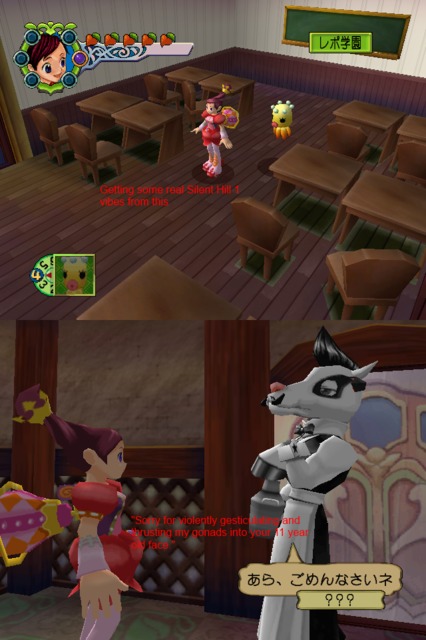
And I think the worst part is that the game itself doesn't know. OK, yes, I'm pretty sure somebody knew that this goddamn thing is the fevered nightmare of a madman, but it's the less obvious stuff that grabs my attention, paradoxically enough. For example, early in the story, Poach is tasked with getting a scared little girl to go to sleep. Now doesn't that seem all sweet and saccharine and what the fuck is that music playing over this scene? Has her mother been singing to her the lullaby of the damned? No wonder she can't go to bed; she probably feels like somebody's gonna slowly choke the breath out of her while she sleeps. I also have something in my notes about "blood red Oni dreams". That I can't remember what I was talking about should tell you just how malefic that must have been. If the developers were actually aware of how horrifying these moments were, then they might have been able to mitigate their terror or even work it into the story more efficiently. But alas, such does not transpire. No, you're simply expected to gaze in horror, only understanding that this is not to be understood.
So what does it say about the craft that went into this game that it actually does create a fantastic fairy tale ambiance in spite of those difficulties? Part of that's because of the occasional narration that makes you feel like you're playing through a story book with pimp dragon accountants, but a lot more of it is because of that second thing I listed: the characters. There are just so many colorful and vibrant characters you get to meet over the course of the game, and a lot of the best moments in the game come from simply getting involved with their daily lives. I could mention the clitoris-nosed Little Manet or the Cinderella-esque Cecil, but I think looking at the two main characters will serve us best. That's right, I'm talking about Poach and Strennup. One's a strong and assertive girl who takes no shit but makes questionable fashion choices; the other's a photobombing middle-aged fairy who can only speak in exposition, ellipses and です. Poach especially is fun to be around for the slight frustration she feels regarding the crap that gets thrown at her, but both characters play off each other's personalities well enough to make for some really enjoyable moments. But more importantly, they both grow to appreciate the time they spend together and Poach learns something valuable from the time she spends in Napple World. You know, like in any good fairy tale.
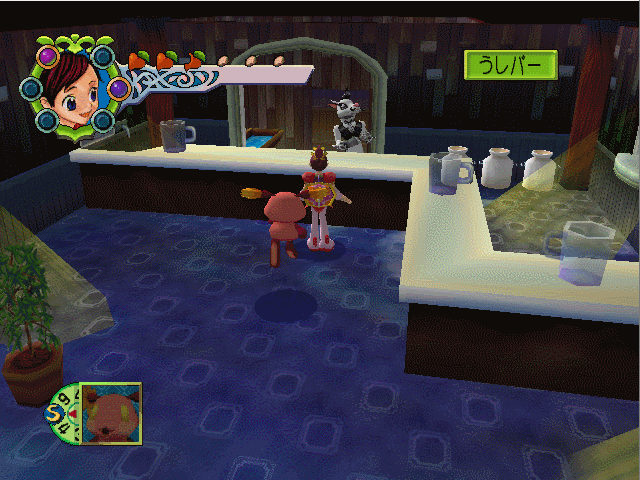
But the greatest thread tying this ethos together would have to be the music. I know that sounds like a strange thing to say after linking you to the eternal lullaby of the damned, but that was just an exception. Most of the music is actually really ornate and elegant and lilly-ish. It really does a lot to melt the cockles of your heart. Combine it with a vivid, intricate aesthetic, and you have the perfect recipe for a highly sincere and whimsical fairy tale.
I've just now remembered that this is a video game and not just a bullet point on Hans Christian Andersen's resume. So just what do you do in Arsia's daydream? A lot of jumping, usually on some sort of two-dimensional plane. Now to get there in the first place, you usually have to talk to various townspeople, figure out what their problems are, and what level is going to solve them. It's got this nice psychological puzzle quality to it, but the real fun lies (quite obviously) in the levels. This is partially because of how simple everything is. You can really only jump and attack, and none of the levels ever ask too much out of you. You don't have to invest too much of yourself into the game to get a rewarding experience out of it.
A much larger reason, though, is that you're always doing something in these levels. There's never any dead air, but you don't feel like the game's needlessly rushing you, either. Spring time may have you jumping around windmills in search of the Moon Princess (or whatever the plot to Klonoa was), while winter may have you racing down a roller coaster track collecting coins. My favorite level would probably have to be the last one, because without spoiling anything, there's just something about the design that connote both urgency and permanence, both of which go very well with what's going on in the story. Even outside that, though, there's a lot of variety over the course of the game and always something to keep you going forward.
Curiously, that same sentence could apply to all the non-platforming elements the game has to offer...sort of. The first part is true, but sadly, I'm not sure the bells and whistles attached to this hold up all that well. What? You thought that this was just a platformer? Oh, how wrong you are. There's a whole dull, empty, lifeless, uninteresting Napple town to explore, man! You can also collect recipes and disassemble junk to get new items and other such things, but I found the whole ordeal just far too obtuse to be of any real value.
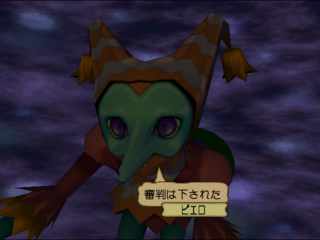
The only reason you'd even do any of this is for the Paffets, these cute little creatures who help you out in your journeys and give me serious Flint the Time Detective vibes. Now there's nothing wrong with these guys on their own; they're cute as all hell and I imagine their abilities would be very useful. But that's the problem: I can only imagine the use of their abilities because I never found any situations that necessitated their use. The navigation focus of the game means you won't be using them for combat all that often, and aside from a few times when you need to summon a platform to jump higher or something, you can get around the levels just fine on your own. If the game was more difficult, I could see myself using them more often, but as it is, they're just an easily ignored luxury rather than an integral part of the game. You know, I could probably say that about half the non-platforming features, boss battles not included. There's just no way I can diss pimp dragon accountants.
But hey, why am I even focusing on this side crap in the first place? It's not like any of it's necessary toward the game's success, and those parts that are necessary already work well enough. The platforming parts of the game are simple but still demonstrate a fine understanding of how the hell you're supposed to design a level; there's a sweet and charming (if a bit terrifying in certain areas) fairy tale story framing it all; and that music.....oh, that music. Of all the games that I've played for my Japanese learning, this is perhaps the first one that I'd actively and heartily recommend. Then again, given what it's up against, that may not be saying a lot.
Review Synopsis
- Allow me to remind you why The World Ends with You should not be a fairy tale. (Or maybe it should.)
- Sega REALLY knew how to design platformers back in the day, although it turns out they didn't know how to design much else.
- And have I mentioned how great this game's aesthetic is?
And what became of Sega, you ask?
.....It's best that you don't know.
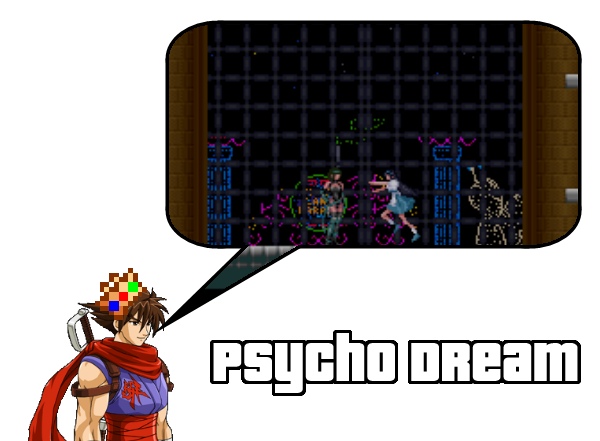
Well, would you look at that? Turns out there's another game of pedigree in this blog. This isn't your ordinary case of me playing a Japan-only SNES game; this is a Japan-only SNES game that was almost released outside Japan. What happened? I think Sega bought out the developer or something and decided against releasing games for their competitor.
Notice how I didn't say anything about good games specifically. That's because in Psycho Dream's case, it's not a good game. But it's not a bad game, either. Hell, Psycho Dream doesn't care if it's good or bad. It's caught halfway between quality and mediocrity, and it simply doesn't give much of a fuck to decide on either one for a good period of time. What you get is a sort of recommendable platformer in the vein of Valis. Except, you know, without those eyes.
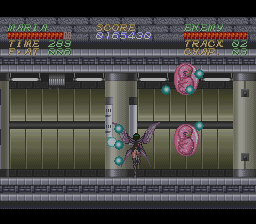
And one of the games clearly looks better. Which one? I'll give you a hint: it begins with a P and is this game. As you progress through the streets of.....I just realized that I don't know what the story is. Something about rescuing a schoolgirl from demons or her dreams or something? I don't remember, and frankly, I don't care. It's largely just an excuse for me to see an almost demonic, almost magical energy take over a modern city. I know that doesn't sound like the most glowing endorsement in the world, but these two art styles really mesh together really well. The city part's all dark and gritty and unpleasant, but not in an overbearing way that draws a lot of attention to itself. It feels like a place people could live in (albeit not as a first choice). So what happens when you layer atop it a slimy, gross and just barely fanciful fantasy atmosphere? You make all that magical invasion stuff that much more meaningful to the experience! Oh, and I guess there's music there, too, but really, it's all about that oddly thought out art style.
I mean, it certainly isn't about the gameplay. That part's odd, alright, but it isn't thought out. Allow me to explain: your quest to....something....will entail walking through a series of very straight lines. That's not the interesting part. The interesting part is that sometimes, the game will reward you for your line-walking abilities by letting you upgrade your weapons. You get two weapons (a whip and a gun), but can only use one at a time, and this is where things get interesting: the worse weapon is the more fun one to use. I'm aware of how strange that sounds, but the gun becomes overpowered pretty fast, and that's saying something when its starting version allows you kill enemies from all the way across the screen.
Compare this to your S&M whip, which can only be used when you're so close to the enemy that it legally counts as sex. But guess what? The game's better this way. There's actual challenge and skill involved in getting through the levels like this. No more can you coast by on spread guns! Now you can take pride in your ability to slash your way through the enemy-infested hallways of the city! Huzzahs are in order! And then you collect a power-up that transforms you into Strennup, fairy angel of death, and spam auto-lock-on bullets all about the screen that kill both enemies and engagement. What does this say about the game's quality that it considers the removal of fun to be rewarding?
And what else does the game have after that? Certainly not level design. Half the levels are alright, I suppose, in that they actually have you doing something. But then there's the other half of the levels. The half that are just straight hallways that spam enemies at you like crazy. No thought. No rhyme. No reason. Just a prolonged period of time where the game asks you to hold forward and sometimes press the attack button. It's like the game simply ran out of ideas at some point, which is rather worrying when you realize how early that point is. And speaking further of points, I feel it is as this point that I should remind you that none of these criticisms make the game outright bad. I mean, you still have that art style to look forward to, and the game's actually pretty good if you play it in a specific way. But ask yourself this: is it worth it to handicap yourself playing through a middling platformer just to get a taste of some accidentally good art? This would be the part where I'd say no, but I think my decision to play Toilet Kids just for some petty, misleading word play disqualifies me from making that judgment.
Review Synopsis
- I must admit: this is a particularly psycho dream. (Does that even mean anything? Well, it does now.)
- "The fairies are too powerful. They must be taken down a notch." - @video_game_king
- Walking in a straight line can be fun, you know. It's just that Psycho Dream lacks the elements that make it fun.